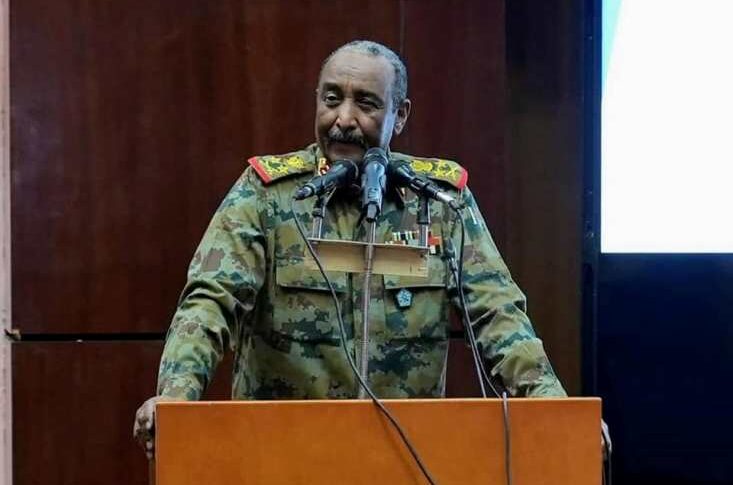Burhan’s call to open Sudan’s political process for more groups, why?
January 5, 2023 (KHARTOUM) – In a speech on the occasion of the 67th Independence Day on December 31, General Abdel Fattah Burhan called to expand the basis of the signatories of the Framework Agreement and warned against the exclusion of political forces.
Al-Burhan stressed the political forces should not miss this historic opportunity to lay the foundations for unity and building the Sudanese state and warned that there is no time to waste.
“Excluding others, diminishing their role, ignoring their demands and imposing guardianship from specific segments of the population will lead to missing this opportunity and put the unity and security of our country at great risk,” he said.
The Forces for Freedom and Change (FFC) refuse to open the agreement for “non-revolutionary and pro-coup forces”. They say the inclusion of all these groups will “flood the process of democratic transition”.
However, they seek to include two groups that supported the coup -the Justice and Equality Movement (JEM) and the Sudan Liberation Movement led by Minni Minawi- saying that they are signatories of the Juba peace agreement. Also, they leave the door ajar to some revolution forces that left the coalition such as the communist party.
Shihab Ibrahim an FFC spokesman confirmed to Sudan Tribune that they would launch the second and final phase of the political process in the coming days, pointing to the five issues that the signatories agreed to hold further discussions on these issues to unify positions.
Sudan Tribune saw the text of the first workshop on the dismantlement of the former regime which is scheduled for January 9.
Possible explanations
There is more than one explanation for Burhan’s statement about the group he was alluding to.
Reached by Sudan Tribune, al-Muez Hadrat, an FFC leading member described al-Burhan’s speech as “unfortunately repeated talk”.
Hadrat said that the coup leader does not talk about the harsh living conditions Sudanese have experienced, nor does he speak honestly about the negative consequences on the country caused by the October 25 and previous coups.
“Burhan’s talk about exclusion as if he wants to say shyly do not exclude the former ruling National Congress Party,” he added. He further recalled that the coup leader reinstated its members to the civil service and restored their money.
After signing the framework agreement with the FFC groups on December 5, 2022, Burhan stated, in the Maakil military base, that what they signed should not be perceived as a political settlement that would benefit a certain group and no party should seek to hijack it.
At the time, some of the anti-coup forces considered al-Burhan statements as a new attempt to backtrack from the two-step process.
The commander-in-chief told Al-Arabiya TV after the signing of the framework agreement that the transitional period should not be subject to quotas and should not put aside anyone.
Shihab Ibrahim, however, minimized his statements saying that al-Burhan speech is “a speech of occasions” with little value.
“He kept repeating some sentences and phrases on more than one occasion and talking about expanding participation and other issues that can be seen as generalities, but what governs us is what is happening on the ground,” the FFC spokesman said.
For his part, political researcher, Taj Alsir Ahmed told Sudan Tribune that al-Burhan deliberately shuffles the cards with continuous insinuations whenever he comes under pressure.
َAhmed believes that the hints certainly target the FCC forces because the framework agreement was concluded with them.
He said that the insinuations of the military leader always come when he receives or feels various pressures from the military establishment or political forces opposed to the FFC.
“Therefore, he seeks to reassure those parties by issuing hints and messages, which is a recurring process that he has been doing since the signing of the constitutional document in 2019 and used it under the two previous transitional governments.”
At the time, al-Burhan “kept making direct and indirect insinuations and attacked the governments that Hamdok ran.”
(ST)

